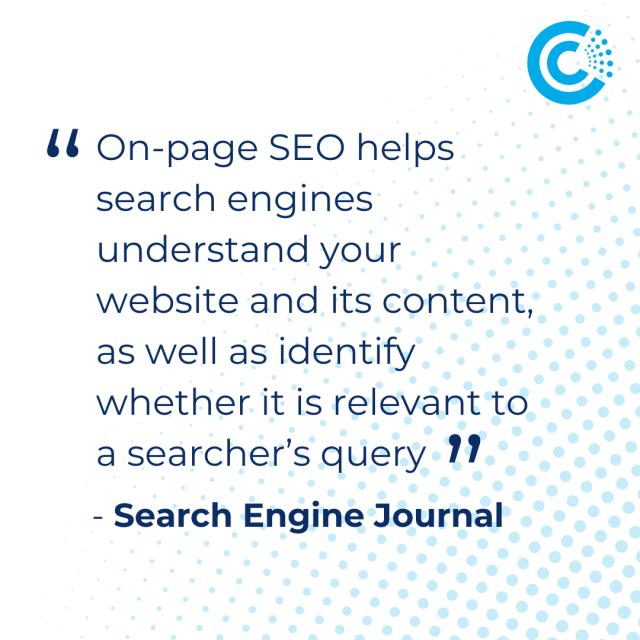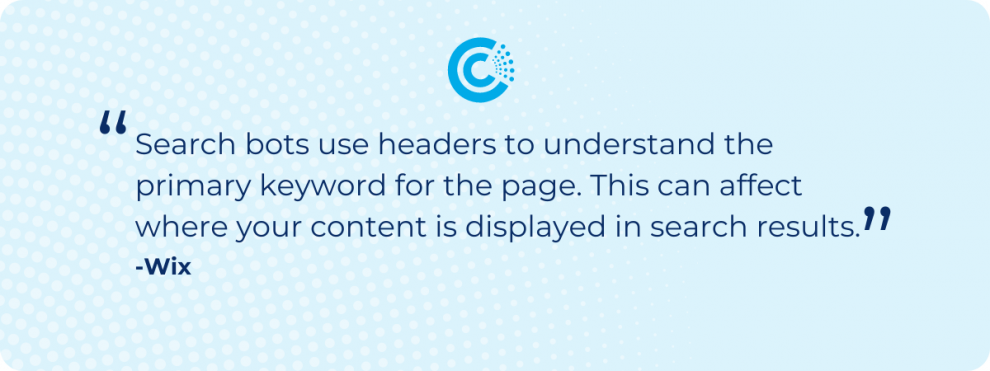While off-page SEO, like link building, is important, optimizing the content on your website is the foundation of a successful SEO strategy.

On-Page SEO vs Off-Page SEO
On-page SEO is anything you can do on your website to improve your ranking while off-page SEO is an attempt to improve your rankings externally. The most common example of this is building backlinks to your website. On-page SEO is fully in your control and a great place to focus on your SEO journey if you are just starting.
Here are 5 On-Page SEO Tips You Can Implement:
- Write high-quality meta titles and meta descriptions. The meta title tag remains one of the most influential on-page ranking factors for Google. Your page titles should be concise, accurately describe the page content, include your target keyword, and be compelling enough to get people to click on it. Meta descriptions can influence click-through rates. Keep meta descriptions around 155 characters, incorporate your keywords, and tell users what's unique about that page.
- Don’t forget about your images! Name your images descriptively, fill out the alt text, and include captions to improve your rankings for image search. Including alt text also makes your website more accessible as it helps those who are visually impaired understand what an image is.
- Use the correct header tags (H1, H2, H3, etc). Header tags help to break up your page content and make it more readable to viewers. H1 tags are used for your page's main heading, while H2 and on should be used in order of importance.
- Use keywords strategically and naturally. Do keyword research to figure out relevant terms and use them naturally in your page titles, meta descriptions, header tags, body content, URLs, and image alt text. Avoid overusing keywords or using them even if it doesn’t sound right. Your content should still sound human, not stuffed with keywords.
- Write content people want to read. At the end of the day, Google wants to rank the most thorough, authoritative, and engaging content on any given topic. Create content that delivers value to your audience and see your ranking grow.
On-page SEO is a never-ending process as you add new pages, update existing ones, and adapt to search engine algorithm changes. If you are looking for a custom-tailored SEO strategy, connect with one of our marketing experts today.



